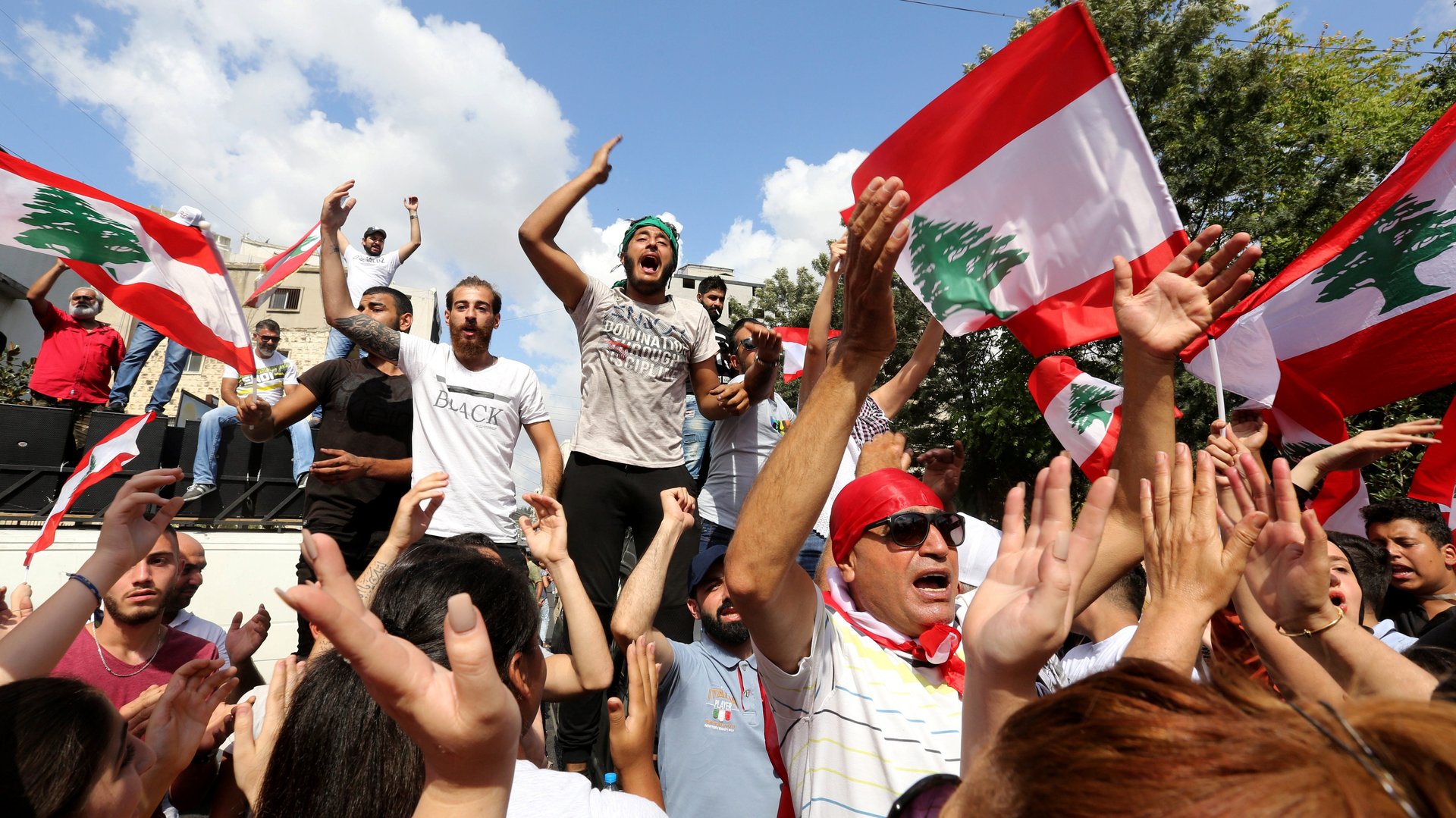Lebanon’s extreme income inequality is fueling its huge protests
Lebanon is the fifth-most indebted nation in the world relative to GDP, according to the IMF. Needing more revenue to service these daunting debts, last week the government introduced a tax on WhatsApp users.


Lebanon is the fifth-most indebted nation in the world relative to GDP, according to the IMF. Needing more revenue to service these daunting debts, last week the government introduced a tax on WhatsApp users.
Cue popular unrest. Hundreds of thousands of citizens have taken to the streets daily since the now-rescinded $6 monthly levy was announced, which could have raked in up to $250 million a year. Helping fuel anger was that a more progressive tax targeting wealthy Lebanese directly was not proposed.
Compared with other countries, Lebanon has a very high level of income inequality. The top 1% of Lebanese earn nearly one-quarter of GDP, close to the highest share in the Middle East, itself one of the most unequal regions in the world, according to the World Inequality Database.
Going even further up the income ladder, the top 0.1% of Lebanese earn about the same share of national income as the bottom 50%. As one Carnegie Endowment scholar puts it, about 3,000 people in Lebanon make as much as more than 2 million.
Lebanese prime minister Saad Hariri has announced a package of reforms in response to the unrest late last week, including slashing politicians’ salaries by 50% and taxing bank profits, the latter of which would reportedly cut the deficit by $3.4 billion. That it took mass protests to prompt reforms was not lost on the demonstrators, and underscores the longstanding erosion of trust between officials and citizens when it comes to the public purse.
The government has long sought to cut spending, to unlock $11 billion in loans and grants that international donors pledged last year, including from the World Bank.